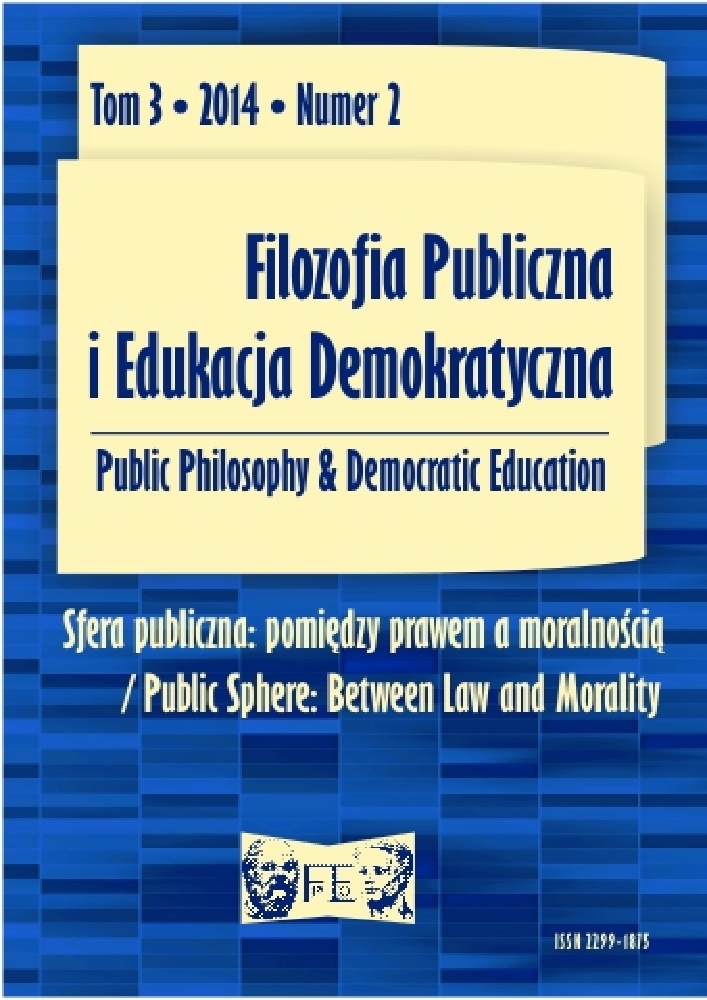Abstrakt
To reduce the limitations of current measures of morality, and to focus on an effective approach to moral development among university students, the researchers adopted the Konstanz Method of Dilemma Discussion, to probe whether this type of method can also be applied among Chinese students, regarding the development of moral competence. ‘Moral Competence’, also known as ‘moral-democratic’ competence, is a concept developed by German psychologist, Professor Georg Lind. It is built upon the theories of Kohlberg, yet focuses on moral judgment and democratic decision-making competence. Lind designed a scale based on his dual-aspect theory, and suggested a follow-up method for building up moral competence. KMDD has been used in Germany and other countries for many years and has achieved positive results when applied. The initial application of this type of method in China started in 2012. After more than two years’ of planning and research, we used this method with different groups of Chineseuniversity students and tested its efficacy. Participants were set as the control and experiment groups. After analysing the preand- post-test data from all the participants, the result shows that the intervention effect with experiment groups was very significant with a noticeable Absolute Effect Size of C-score, while the competence score of control group regressed sharply due to reasons to be identified. Data from the experiment were analysed and intervention results were compared, to examine the efficacy of the method and to evaluate further application and research of KMDD in China.Bibliografia
Ban, Rongding, Being University – Theories and Practices in Fostering Morality of Students at Universities, People’s Press, Beijing 2009.
Cohen Jacob, Statistical Power. Analysis for the Behavioral Sciences, Lawrence Erlbaum Associates, New York 19691/19882.
CPDRC (China Population and Development Research Center), Report on Trend and evaluation of Chinese Labour Changes, 2010; Available at http:// news.sina.com.cn/c/2010-05 20/014917535675s.shtml. Accessed on 2012-06-12.
Greene, Joshua, Moral Tribes: Emotion, Reason and the Gap Between Us and Them, Atlantic Books, London 2013.
Kohlberg, Lawrence, “The Meaning and Measurement of Moral Development”, in: Lawrence Kohlberg (ed.), The psychology of moral development. Essays on moral development, Harper & Row, San Francisco: 1984, (2) pp. 395-425.
Lind, Georg, Can Morality be Taught? Research Findings from Modern Moral Psychology, Logos Verlag, Berlin 2002.
Lind, Georg, “Experimental Questionnaire: A New Approach to Personality Research”, in: Adolf Kossakowski, Kazimierz
Obuchowski (eds.), Progress in Psychology of Personality, Deutscher Verlag, Berlin 1980, pp. 4-23.
Lind, Georg, “Moral Dilemma Discussion Revisited-The Konstanz method”, European Journal of Psychology, Vol. 1, No, 1, 2005.
Lind, Georg, Morality can be Taught-A Handbook for Moral and Democratic Education, Oldenbourg, Munchen 2009.
Lind, Georg, “The Meaning and Measurement of Moral Judgment Competence Revisited – A dual-aspect model”, in: Daniel Fasko, Jr., Wayne Willis (eds.), Contemporary Philosophical and Psychological Perspectives on Moral Development and Education, NJ: Hampton Press, New York 2008, pp.185-220.
Lipsey, Mark W. & Wilson, David B., “The Efficacy of Psychological, Educational and Behavioral Treatment – Confirmation from Meta-analysis”, American Psychologist, Vol. 48, 1993 (pp. 1181-1209).
Lipsey, Mark W., & Wilson, David B., Practical meta-analysis, Sage Publications, Thousand Oaks, CA 2001.
Sandel, Michael J., Justice: what’s the right thing to do?, China Citic Press, Beijing 2011.
Schillinger, Marcia, Learning Environments and Moral Development: How University Education Fosters Moral Judgment Competence in Brazil and Two German-Speaking Countries,
Shaker Verlag, Aachen 2006.
Tan, Chuanbao, Principles of Moral Education, Beijing Normal University Press, Beijing 2007.
Turiel, Elliot, “Thought, Emotions and Social Interactional Processes in Moral Development”, in: Melanie Killen, Judith G. Smetana (eds.), Handbook of Moral Development, Lawrence Erlbaum Associates, Mahwah, New Jersey, 2006, pp. 7-35.
Yang, Shaogang, New Development of Moral Psychology, Shanghai Education Press, Shanghai 2007.
Zheng, Haomin, Wen, Zhonglin & Wu, Yan. “The Appropriate Effect Sizes and Their Calculations in Psychological Research”, The Development of Psychological Science, Vol. 19, 2011 (pp. 1868-1878).
Licencja
Prawa autorskie (c) Autorzy zachowują prawa autorskie i prawa do publikacji swoich artykułów w tym czasopiśmie, przyznając czasopismu prawo do ich rozpowszechniania na warunkach CC BY-NC-ND 4.0
